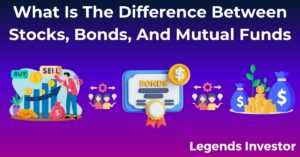Introduction to Online Brokerage Platforms for Beginners
Welcome to the exciting world of online investing! If you’re new to the world of investing, navigating through the myriad of online brokerage platforms can seem overwhelming. But fear not, as this guide will provide you with a comprehensive overview of what online brokerage platforms are, why choosing the right one is crucial, and how to find the best platform to suit your investment needs.
What Are Online Brokerage Platforms?
Online brokerage platforms are digital services that allow individuals to buy, sell, and manage investments such as stocks, bonds, ETFs, and other financial instruments. These platforms act as intermediaries between you and the financial markets, enabling you to execute trades and manage your investment portfolio from the comfort of your home.
Importance of Choosing the Right Platform for Beginners
For beginners, selecting the right online brokerage platform is essential for a smooth investing experience. A well-suited platform can provide educational resources, user-friendly interfaces, and robust customer support, which are crucial for new investors. Conversely, a poorly chosen platform might result in confusion, higher costs, and missed opportunities.
Criteria for Selecting the Best Platform
When choosing an online brokerage platform, several factors come into play. Here’s a rundown of what to consider:
- Ease of Use: The platform should be intuitive and user-friendly, especially for beginners.
- Educational Resources: Look for platforms that offer comprehensive educational content to help you learn and grow as an investor.
- Costs and Fees: Understanding the fee structure is vital for managing your investment costs.
- Investment Options: A diverse range of investment options can help you build a balanced portfolio.
- Customer Support: Reliable customer support can assist you with any issues or questions.
- Security and Reliability: Ensure the platform has strong security measures to protect your investments.
Understanding Your Investment Goals
Identifying Your Investment Objectives
Before diving into the world of online brokerage platforms, it’s essential to identify your investment goals. Are you looking for long-term growth, steady income, or a mix of both? Your investment objectives will guide your choice of platform and help tailor your strategy.
How Investment Goals Influence the Choice of a Brokerage
Your investment goals can influence several aspects of your brokerage choice:
- For Long-Term Growth: Platforms offering a wide range of investment options, including stocks and ETFs, may be ideal.
- For Steady Income: Look for platforms with robust tools for bond investments and dividend tracking.
- For Diversification: Platforms with access to various asset classes, such as real estate and commodities, will help you diversify your portfolio.
The Importance of Risk Assessment for Beginners
Understanding your risk tolerance is crucial when selecting a brokerage platform. Beginners should opt for platforms that provide risk assessment tools and educational resources to help them gauge their risk tolerance and make informed decisions.
Ease of Use: User-Friendly Interfaces
Why Ease of Use Is Critical for Beginners
For beginners, a user-friendly interface is vital. An intuitive platform can simplify the trading process, making it easier to navigate and execute trades. Complex or confusing interfaces can lead to mistakes and frustration.
Features That Denote a User-Friendly Platform
When evaluating the ease of use of a platform, consider the following features:
- Simple Navigation: Clear menus and easily accessible tools.
- Customizable Dashboards: Ability to tailor the layout according to your preferences.
- Streamlined Trade Execution: Quick and straightforward process for placing trades.
Examples of Platforms with Intuitive Interfaces
Several platforms are known for their user-friendly interfaces, including:
- Robinhood: Known for its simple and clean design.
- E*TRADE: Offers customizable dashboards and easy navigation.
- Fidelity: Features a well-organized layout and easy-to-use tools.
Educational Resources for Learning
The Role of Educational Content in Beginner Investing
Educational resources play a critical role in helping beginners understand the fundamentals of investing. They provide valuable insights, strategies, and tips that can enhance your investing knowledge and confidence.
Types of Resources Offered by Brokerages
Brokerages often provide a variety of educational resources, including:
- Webinars: Live or recorded sessions covering various investment topics.
- Tutorials: Step-by-step guides on using the platform and understanding investment concepts.
- Articles: Informative content on market trends, investment strategies, and financial planning.
Brokerage Platforms Known for Excellent Educational Tools
Some platforms stand out for their educational resources, such as:
- Charles Schwab: Offers a robust learning center with articles, webinars, and tools.
- TD Ameritrade: Provides extensive educational content and live webinars.
- Interactive Brokers: Features a wealth of educational materials and research tools.
Costs and Fees: Understanding the Fine Print
Different Types of Fees and Costs Associated with Online Brokerages
Understanding the fee structure of an online brokerage is essential for managing your investment costs. Common fees include:
- Commissions: Fees charged per trade or transaction.
- Account Maintenance Fees: Monthly or annual fees for account upkeep.
- Inactivity Fees: Charges applied if no trades are made within a specified period.
- Margin Fees: Costs associated with borrowing funds for trading on margin.
Tips for Minimizing Fees and Maximizing Investments
To minimize fees and maximize your investments:
- Look for No-Fee Platforms: Some platforms offer commission-free trading.
- Avoid Inactivity Fees: Choose platforms with low or no inactivity fees.
- Compare Fee Structures: Review and compare the fee structures of different platforms.
Comparing Fee Structures of Popular Platforms for Beginners
When comparing fee structures, consider platforms like:
- Robinhood: Known for its commission-free trading model.
- Fidelity: Offers low fees and no account maintenance charges.
- Merrill Edge: Provides competitive pricing with no annual fees.
Investment Options and Asset Diversity
The Range of Asset Classes Available to Investors
A diverse range of investment options allows you to build a well-rounded portfolio. Key asset classes include:
- Stocks: Shares of individual companies.
- Bonds: Debt securities issued by governments or corporations.
- ETFs: Exchange-traded funds that track various indices.
- Mutual Funds: Investment funds pooled from multiple investors.
- Real Estate: Property investments through REITs.
Benefits of a Diverse Portfolio for Beginners
A diversified portfolio helps manage risk by spreading investments across various asset classes. This approach reduces the impact of poor performance in any single investment, providing a more stable overall return.
Online Platforms Offering a Wide Array of Investment Options
Consider platforms that offer access to diverse asset classes, such as:
- Fidelity: Provides a broad range of investment options including stocks, ETFs, and mutual funds.
- Charles Schwab: Offers extensive asset classes and investment vehicles.
- TD Ameritrade: Features a wide selection of stocks, ETFs, and bonds.
Customer Support: Accessibility and Help Services
Why Responsive Customer Support Is Important for New Investors
Good customer support is crucial for addressing issues, answering questions, and providing assistance with platform navigation. Responsive and knowledgeable support can enhance your overall investing experience.
Features of Good Customer Support
Look for platforms with:
- 24/7 Availability: Support that is available around the clock.
- Multiple Channels: Options to contact support via phone, chat, email, or social media.
- Comprehensive Help Resources: Access to FAQs, tutorials, and support articles.
Online Brokerage Platforms with Strong Support for Beginners
Platforms known for excellent customer support include:
- E*TRADE: Offers 24/7 customer support and multiple contact options.
- Charles Schwab: Provides robust support services and extensive help resources.
- Fidelity: Known for its responsive customer service and detailed support articles.
Security and Reliability of the Platform
Importance of Security in Online Investing
Security is paramount in online investing to protect your personal and financial information from unauthorized access. A secure platform ensures your investments and data are safe.
Security Features to Look For in a Brokerage Platform
Key security features include:
- Encryption: Ensures data transmission is secure.
- Two-Factor Authentication: Adds an extra layer of protection to your account.
- Insurance Coverage: Some platforms offer insurance for account balances.
Reputation and Reliability of Platforms for Secure Transactions
Choose platforms with a strong reputation for security and reliability:
- Fidelity: Known for its robust security measures and reputation.
- Charles Schwab: Offers high-security standards and insurance coverage.
- TD Ameritrade: Features strong security protocols and customer protection.
Making the Decision: Comparing Top Brokerage Platforms for Beginners
Summary of Key Features Discussed
To recap, when choosing an online brokerage platform, consider:
- Ease of use and user-friendly interfaces
- Educational resources for learning
- Costs and fee structures
- Investment options and asset diversity
- Customer support accessibility
- Security and reliability
Side-by-Side Comparison of Leading Brokerage Platforms
Here’s a quick comparison of some top platforms for beginners:
| Feature | Robinhood | Fidelity | Charles Schwab | E*TRADE |
|---|---|---|---|---|
| Ease of Use | Excellent | Very Good | Very Good | Good |
| Educational Tools | Basic | Extensive | Extensive | Extensive |
| Costs/Fees | Commission-Free | Low Fees | Low Fees | Low Fees |
| Investment Options | Limited | Broad | Broad | Broad |
| Customer Support | Basic | Excellent | Excellent | Excellent |
| Security | Strong | Strong | Very Strong | Strong |
Final Tips on Choosing the Platform That Fits Your Individual Needs
When selecting a brokerage platform, prioritize your individual needs and preferences. Consider factors such as the ease of use, educational resources, fee structures, and the range of investment options. Take advantage of free trials or demo accounts to get a feel for the platform before committing.
By following these guidelines, you’ll be well on your way to choosing the right online brokerage platform and embarking on a successful investing journey. Happy investing!



